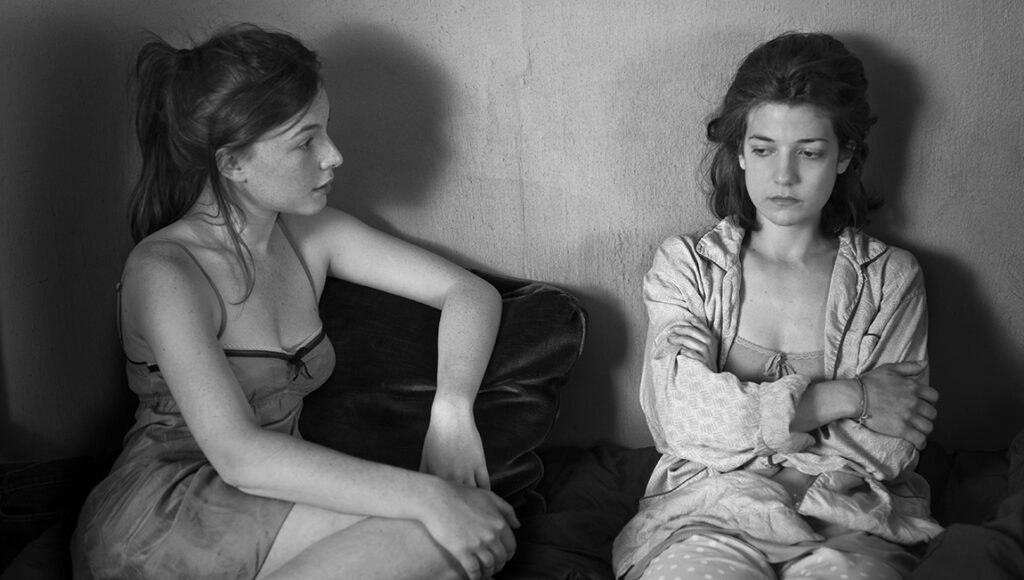Philippe Garrel’s career has certainly taken an odd turn. The director, who first made waves in the experimental Zanzibar Group after Mai ’68, now sits comfortably tracing the ins and outs of fidelity, often using his children as his stylo. Lover for a Day comes as no exception, as once again a healthy dose of Flaubert and Freud flow through a bourgeois Paris home, possessing characters who do before they think. And, again, there’s very little doing and a lot of thinking. This time, however, it’s Esther Garrel’s (Philippe’s daughter) turn to lead the rote conversations about infidelity. Her Jeanne discovers that her father Gilles (Éric Caravaca) has been sleeping with a student, Ariane (Louise Chevilotte), who’s just as old as Jeanne herself. To make matters worse, Jeanne has just been through that sort of adolescent breakup where the sting of the young, rash broken promises seeps its venom into the skin. It sinks deep into Jeanne, and her face constantly bears a mask of sickness, often in close-up. Of course, Jeanne can’t rely on her father’s comfort when his new girlfriend is making advances, and Ariane can’t steal her lover away when his suicidal daughter needs attention — so, they become fast friends.
Cinematographer Renato Berta’s blacks and whites, as in In the Shadow of Women, exist to minimize everything aside from the performances. In the scene in which Gilles discovers Ariane’s impulsive affair, the camera is positioned such that the audience knows of their act before Gilles does, allowing Caravaca’s whole range of emotions to sweep through his body. However, it’s Chevilotte, a relative newcomer, who gets the most close-ups, as she does the heavy Lacanian lifting of multiple désirs: mother, friend, girlfriend, freedom. She’s broken down, only to be lifted back up with no promises. Garrel doesn’t seem to like young people, but he does find them endlessly fascinating, as they still somehow expect things to turn out all right and still have the energy to express shock and disappointment when they don’t. He still sees the spirit of ‘68 in those young Parisian faces, and he’s pressing them to exert the same political energy.
Published as part of New York Film Festival 2017 | Dispatch 2.


Comments are closed.